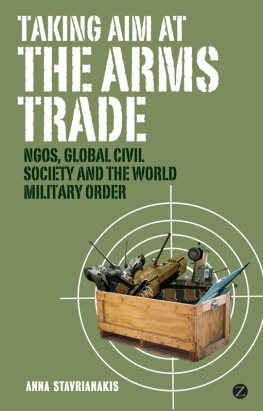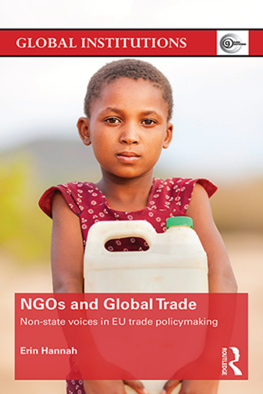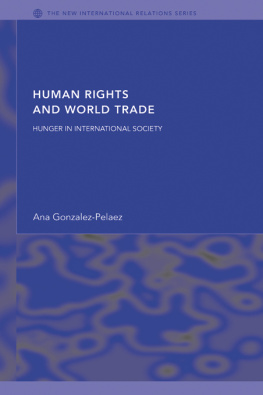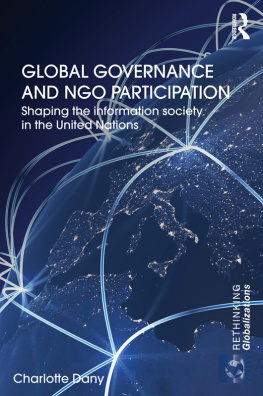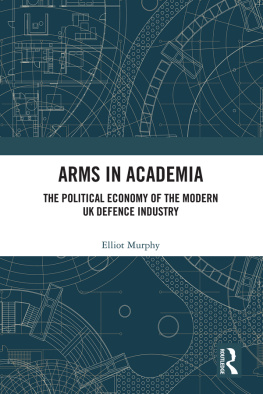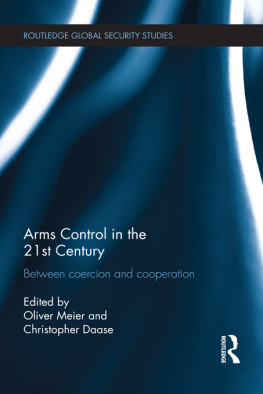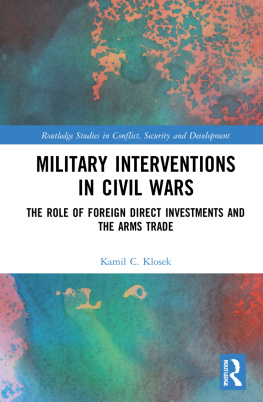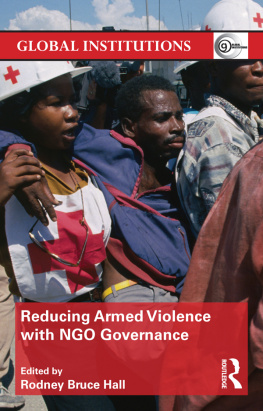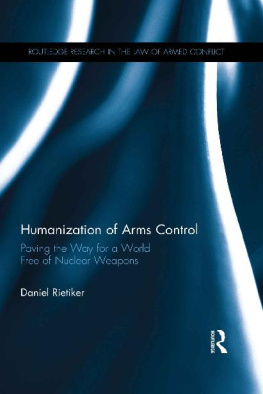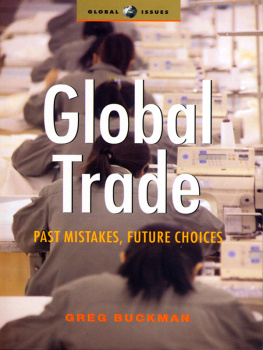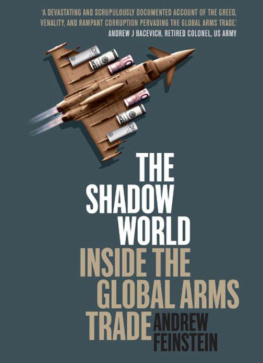About the author
Anna Stavrianakis is a lecturer in international relations at the University of Sussex. Her main research interests are NGOs and global civil society; the arms trade and military globalisation; and critical approaches to the study of international security.
Taking Aim at the Arms Trade
NGOs, Global Civil Society
and the World Military Order
Anna Stavrianakis
Zed Books
London & New York
Taking Aim at the Arms Trade: NGOs, Global Civil Society and the World Military Order was first published in 2010 by Zed Books Ltd, 7 Cynthia Street, London N1 9JF, UK and Room 400, 175 Fifth Avenue, New York, NY 10010, USA
This ebook edition was first published in 2013
www.zedbooks.co.uk
Copyright Anna Stavrianakis 2010
The right of Anna Stavrianakis to be identified as the author of this work has been asserted by her in accordance with the Copyright, Designs and Patents Act, 1988
Designed and typeset in Bembo by Kate Kirkwood
Index by Rohan Bolton, Rohan.Indexing@gmail.com
Cover designed by David Bradshaw
All rights reserved. No part of this publication may be reproduced, stored in a retrieval system or transmitted in any form or by any means, electronic, mechanical, photocopying or otherwise, without the prior permission of Zed Books Ltd.
A catalogue record for this book is available from the British Library
Library of Congress Cataloging in Publication Data available
ISBN: 978-1-84813-900-8
For Brownie
Contents
Acknowledgements
This book is the product of engagement with a variety of people over several years. The strengths of it, such as they are, would not have been possible without those people, although I alone am responsible for its weaknesses. I am grateful to the many NGO staff members and volunteers, and civil servants involved in arms export licensing, who have generously discussed a variety of arms trade and control issues with me over time and, in some cases, commented on the manuscript. At the University of Bristol, where this academic project began life, Rob Dover and Ruth Blakeley provided moral and intellectual support, and I am grateful to Jutta Weldes and Richard Little for their guidance. More recently, at the University of Sussex, colleagues and friends have provided a congenial and stimulating environment in which to work. It is a pleasure and a privilege to be part of such a community. Spanning these geographical and temporal locations has been the invaluable combination of support and criticism from Tarak Barkawi, and stimulating dialogue with Neil Cooper, Keith Krause and David Mutimer.
I am very grateful to Tarak Barkawi, Ruth Blakeley, Rob Dover, Laleh Khalili, Jasna Lazarevic, Jan Selby, Martin Shaw and the anonymous reviewer for commenting on some of all of the manuscript. Some of the material in this book was presented at various BISA and ISA annual conferences, and at the LSEs Centre for Civil Society and Centre for the Study of Global Governance; thanks to the participants at these events for their constructive feedback. For their guidance during the publication process, thanks are due to Ellen Hallsworth and Ken Barlow at Zed Books. The original project on which this book is based was made possible by an ESRC PhD studentship and a Postdoctoral Fellowship.
I am indebted to my family and friends for their support over the years, and for their restraint in asking when the book affectionately known as Chicks and Guns will be finished. I hope that what follows will provide some explanation of what Ive been doing with my time. This book is dedicated to our dear friend Joanna Brown, who died suddenly in August 2008. May her generosity, adventurousness, determination, kindness and humour continue to inspire the rest of us.
Abbreviations
| ADS | AeroSpace, Defence and Security Industries (UK) |
| AeIGT | Innovation and Growth Team |
| BASIC | British American Security Information Council |
| BERR | Department for Business, Enterprise and Regulatory Reform |
| BIS | Department for Business, Innovation and Skills |
| CAAT | Campaign Against Arms Trade |
| CHAD | Conflict and Humanitarian Affairs Department |
| CHASE | Conflict, Humanitarian and Security Department |
| CND | Campaign for Nuclear Disarmament |
| DDR | disarmament, demobilisation and reintegration |
| DESO | Defence Export Services Organisation |
| DfID | Department for International Development |
| DSEi | Defence Systems and Equipment International |
| DSO | Defence and Security Organisation |
| DTI | Department for Trade and Industry |
| ECGD | Export Credits Guarantee Department |
| EDA | European Defence Agency |
| ENAAT | European Network Against Arms Trade |
| EU | European Union |
| FCO | Foreign and Commonwealth Office (UK) |
| GDP | gross domestic product |
| HDI | Human Development Index |
| IANSA | International Action Network on Small Arms |
| ICAO | International Civil Aviation Organization |
| ICBL | International Campaign to Ban Landmines |
| IGO | inter-governmental organisations |
| IHL | international humanitarian law |
| ISIS | International Security Industrial Strategy |
| ITAR | International Traffic in Arms Regulations |
| JRCT | Joseph Rowntree Charitable Trust |
| LDC | Least Developed Country |
| MoD | Ministry of Defence (UK) |
| MP | Member of Parliament |
| NATO | North Atlantic Treaty Organisation |
| NDIC | National Defence Industries Council |
| NGO | non-governmental organisation |
| NISAT | Norwegian Initiative on Small Arms Transfers |
| NOD | Non-Offensive Defence |
| NRA | National Rifle Association (US) |
| ODA | overseas development aid |
| OECD | Organisation for Economic Co-operation and Development |
| PRIO | International Peace Research Institute, Oslo |
| RAF | Royal Air Force |
| SFO | Serious Fraud Office (UK) |
| SIPRI | Stockholm International Peace Research Institute |
| SSR | security sector reform |
| UKTI | UK Trade and Investment |
| UKWG | UK Working Group on Arms |
| UN | United Nations |
| WFSA | World Forum on the Future of Sport Shooting Activities |
| WMD | weapons of mass destruction |
| WOOC | Work On Own Country |
Introduction
On 6 December 2006, the United Nations General Assembly took a historic step in voting in favour of a proposal to pursue an international, legally binding Arms Trade Treaty. Recognising that the absence of common international standards on the import, export and transfer of conventional arms undermin[es] peace, reconciliation, safety, security, stability and sustainable development, Resolution 61/89 mandated the UN to establish agreed international rules for arms transfers ().

